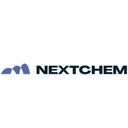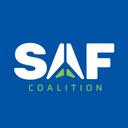Gevo Inc. on Aug. 8 reported that the U.S. Department of Energy loan guarantee process for its proposed Net-Zero 1 ATJ project is progressing as expected. CEO Patrick Gruber said the company expects to close project financing by the end of 2024.
The 2024 North American SAF Conference & Expo will consist of panels that describe the newest developments in the SAF Industry. Topics such as biofuel crops, federal policies, the increase of SAF usage worldwide, and more will be presented.
Calumet Inc. on Aug. 9 released Q2 financial results for Calumet Specialty Products Partners L.P., reporting the company’s Montana Renewables business achieved record SAF production of approximately 7 million gallons.
Reps. Mike Flood, R-Neb., and Troy A Carter, Sr., D-La., on Aug. 9 introduced the Sustainable Aviation Fuel (SAF) Information Act. The bill directs the U.S. Energy Information Administration to include SAF data in its weekly and monthly reports.
Gevo Inc. on Aug. 9 released a new report by Charles River Associates demonstrating the benefits of sustainable aviation fuel (SAF) production, including at Gevo’s planned Net-Zero 1 (NZ1) alcohol-to-jet (ATJ) SAF facility in South Dakota.
DG Fuels has selected Phelps County, Nebraska, for its first Midwest production facility. The plant will produce 193 MMgy of SAF that meets ASTM fuel standards. Production is expected to begin in 2030.
KBR announced on Aug. 6 that Avina Clean Hydrogen Inc. has selected the sustainable aviation fuel technology, PureSAF, for its project in the US. Developed by Swedish Biofuels, PureSAF technology is exclusively licensed by KBR worldwide.
MAIRE has announced that NEXTCHEM (Sustainable Technology Solutions) was been awarded a feasibility study along with PT Tripatra Engineers and Constructors for a sustainable aviation fuel (SAF) project located in Sei Mangkei, Indonesia.
Aemetis Inc., a renewable natural gas and renewable fuels company focused on low and negative carbon intensity products that replace fossil fuels, on Aug. 1 announced Q2 2024 revenues were up 48% when compared to the same period of 2023.
Sora Fuel, a startup producing SAF using water, air and renewable energy, has announced it has raised an oversubscribed $6 million seed round. The funding will be used to expand the company’s team, develop partnerships and advance its technology.
Biofuel generated from logging residues could make switching to sustainable aviation fuel (SAF) more cost-efficient and carbon friendly than previously thought, according to new research from the University of Georgia.
Gunvor Group has announced it will partner with VARO Energy to build a large-scale biorefinery at the Gunvor Energy Rotterdam site that will be capable of producing sustainable aviation fuel (SAF) and renewable diesel.
Masdar, TotalEnergies to develop a commercial green hydrogen to methanol to SAF project in Abu Dhabi
Abu Dhabi Future Energy Company PJSC – Masdar, the UAE’s clean energy powerhouse, has signed an agreement with TotalEnergies to assess the viability of developing a commercial green hydrogen to methanol to SAF project.
PETRONAS, Enilive and Euglena have reached the final investment decision to develop a biorefinery in Malaysia that will produce SAF and renewable diesel. The project is expected to be operational by the second half of 2028.
The National Renewable Energy Laboratory, in partnership with the U.S. Department of Energy Bioenergy Technologies Office, released the first two parts of the Sustainable Aviation Fuel (SAF) State-of-Industry Report.
PBF Energy Inc. on Aug. 1 announced that its St. Bernard Renewables facility produced approximately 16,500 barrels per day of renewable diesel during the Q2 2024. Like many renewable diesel producers, the company is also considering a pivot to SAF.
Boeing and Clear Sky are joining forces to accelerate sustainability solutions for aviation. As an initial project, the companies will help in testing and advancing Firefly Green Fuels’ cutting-edge technology to increase SAF production in the U.K.
Neste and HELLENiQ ENERGY, one of Southeast Europe's leading energy groups, have collaborated to deliver blended Neste MY Sustainable Aviation Fuel to HELLENiQ ENERGY’s facilities in Thessaloniki, Greece.
United on July 31 became airline to purchase SAF for use at O'Hare International Airport (ORD) and Gov. JB Pritzker joined the airline's leadership at ORD to highlight the role that Illinois' SAF tax credits played in bringing SAF to the facility.
JetBlue and World Fuel Services, a World Kinect company, on July 31 announced a new commercial agreement to bring the first regular supply of blended SAF, provided by Valero Marketing and Supply Co. to JFK Airport as early as Q4 2024.
Airbus, the Air France-KLM Group, Associated Energy Group, LLC, BNP Paribas, Burnham Sterling, Mitsubishi HC Capital Inc. and Qantas Airways Limited co-invested in a SAF financing fund to accelerate the production of SAF.
Phillips 66 on July 30 confirmed its Rodeo Renewable Energy Complex in California will begin producing sustainable aviation fuel (SAF) during the third quarter. The company also expects renewable diesel margins to improve later this year.
CVR Energy Inc. on July 29 reported that the renewable diesel unit at its Wynnewood refinery in Oklahoma processed nearly 12 million gallons of feedstock during Q2. The company continues to consider a pivot to SAF production.
Thailand’s newly proposed National Energy Plan is expected to set a target for sustainable aviation fuel (SAF) starting in 2026, according to a report filed with the USDA. The plan also includes targets for ethanol and biodiesel.
International Airlines Group has reached an agreement with the multi-energy company Repsol for the purchase and supply during the next six months of more than 28,000 metric tons of sustainable aviation fuel (SAF).
HIF Global has announced the signing of a memorandum of understanding with Airbus to advance the global development of e-Fuels for aviation ("e-sustainable aviation fuel" or "e-SAF") via the methanol to jet fuel (MTJ) pathway.
Researchers analyzed the financial and environmental costs and benefits of four biofuels crops used to produce SAF in the U.S. They found that each feedstock performed best in a specific region of the rainfed United States.
Neste Corp. on July 25 released second quarter results, reporting that operational performance at the company’s facilities was solid during the three-month period despite a very challenging market environment for renewables.
Valero Energy Corp. released Q2 financial results on July 25, reporting strong performance for both its ethanol and renewable diesel segments. The company’s SAF project in Texas remains on track to begin operations later this year.
The Sustainable Aviation Fuel (SAF) Coalition responds to USDA request for information on biofuel feedstocks, encouraging the agency to ensure federal policies are science-based and technology and feedstock neutral.
Advertisement






























